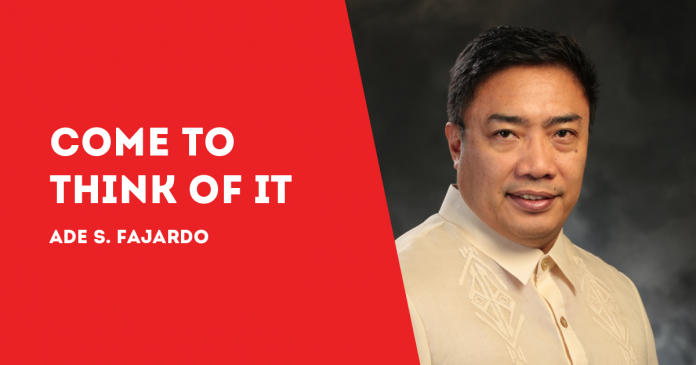
ACTIVIST Jory Porquia, Bayan Muna Iloilo coordinator, was shot dead by at least four unidentified armed men in his rented home at Arevalo in Iloilo City last Thursday, April 30.
On Labor Day, activists gathered to condemn Porquia’s killing. They were arrested by the police.
Lawyer Angelo Guillen who tried to assist them was also arrested. The rallyists and their lawyer were released on bail after spending a night in detention.
The protesters will face further proceedings on charges of illegal assembly, violation of the Bayanihan Act, disobedience to authority, and non-cooperation in a health crisis as defined under Republic Act No. 11332.
Lawyers getting arrested with their clients appear to have become acceptable police practice in this country.
Suspected drug lord Melvin Odicta Sr. and his wife were assassinated at the jetty port in Caticlan, Aklan at the height of the government’s drug war in August 2016.
Four months later, the Philippine Drug Enforcement Agency arrested lawyer Marben Lumbo for obstruction of justice after he objected to the implementation of a search warrant at the Odicta family compound in Iloilo. Odicta’s orphaned children were arrested together with Attorney Lumbo.
In August 2018, young lawyers Jan Vincent Soliven, Lenie Rocha and Romulo Alarcon were arrested and detained overnight after allegedly committing “obstruction of justice” for monitoring and documenting a police raid at a bar in Makati City.
High-ranking police officials defended the arrest of the lawyers, saying they were preventing police officers from undertaking a thorough search of the bar. While the charges were eventually dismissed, there is no describing the psychological baggage they have since been carrying for merely responding to the pleas of a client.
Among the charges brought against those lawyers was “constructive possession” of illegal drugs – an especially hilarious concoction formulated by the police. This would mean that all lawyers who come to the succor of their clients accused of drug-related offenses would be in possession of the prohibited substances found in the premises being searched.
That theory ignores a basic legal postulate, i.e., that constructive possession requires control, dominion, or management over the premises. There must have been “animus possidendi” or intent to possess the drugs.
Lawyers are professionals who must not be associated with the perceived crimes of their clients. A lawyer is not a rapist upon the happenstance that he is defending a man accused of rape.
Lawyers are sworn to advocate their clients’ causes within the bounds of law, free from fear and intimidation, and regardless of whether such clients are subsequently adjudged guilty or innocent.
So crucial is a lawyer’s role in the administration of justice that the United Nations has required governments to ensure that lawyers are able to perform all of their professional functions without intimidation, hindrance, harassment or improper interference.
In 1990, the eighth United Nations Congress adopted the basic principles on the role of lawyers in furthering the ends of justice and public interest.
Among those principles is that lawyers must be able to travel and to consult with their clients freely both within their own country and abroad.
Also, that lawyers must not suffer, or be threatened with, prosecution or administrative, economic or other sanctions for any action taken in accordance with recognized professional duties, standards and ethics.
At some point in their career, legal practitioners are faced with the question of whether to accept representation of a client who is facing drug charges. Or to handle a public interest case that is seen to benefit the public at large but may require the dismantling of certain entrenched interests that governments are minded to defend.
In a society that upholds the rule of law, accepting such a case would be like accepting any other case. In fact, to repeat, lawyers are ethically bound to represent clients regardless of the gravity of the offense, and irrespective of popular opinion as to guilt or innocence.
The Bill of Rights is an incantation of protective measures against the well- nigh intrusive and coercive powers of government. The Philippine Constitution guarantees due process of law to its citizens. There is failure in the discharge of this guarantee in a country where lawyers tread in fear rather than advocate in freedom./PN

